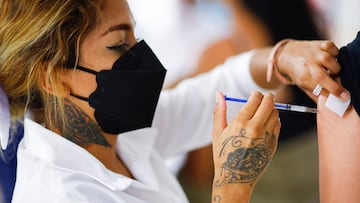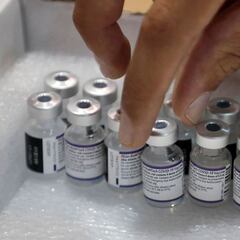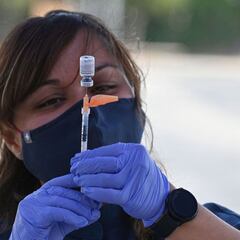Why can’t kids get covid vaccine?
The impending return of children to classrooms this fall has highlighted the reality that the Covid-19 vaccine is not yet available for kids below 12.

While the Pfizer vaccine has already been fully approved by the US Food and Drug Administration for people 16 years of age and above, there are still no vaccines for kids below 12 even with emergency use authorization.
Why the delay in providing vaccines for the very young?
Throughout the pandemic, fewer children have been infected with Covid-19 compared to adults, and they are also less likely to be seriously ill from the virus. There has therefore been less urgency in vaccinating them. Adult trials came first simply because of the higher risk for older people.
Related news
It is still being determined whether it is necessary to vaccinate young children in the first place, given that in some countries not much is yet known about how the virus affects children. With this dearth of information, it is still unclear whether the benefits of vaccination outweigh the risks.
Clinical trial results to take months
A COVID-19 vaccine for children between the ages of 5 and 11 may not be approved until the end of 2021, NIH Director Francis Collins told NPR.https://t.co/KEVo0BH5Ge
— NPR (@NPR) August 24, 2021
It will take at least a few more months before pharmaceutical companies finish their clinical trials. They are still studying the vaccines’ effects, safety, and proper dosage, because of the need for more data from children across smaller age ranges.
The immune system of young children is still developing, so the vaccine may affect them differently from year to year. Children of varying ages are likely to respond in different ways, so there is a need to take each age separately and evaluate the vaccines accordingly.
Longer process for kids' clinical trials
One other reason why clinical trials are taking longer for children is that there are usually more rigorous safety protocols when kids are involved. They are vulnerable because they can’t make decisions for themselves, so the process is undergone more carefully for their protection.
After the companies gather the data, they can ask the FDA to authorize emergency use for the vaccine. The FDA can then take up to several weeks to approve the request.
The morality of vaccinating children
One other factor to consider is the moral aspect of giving the vaccine to children, when they are a relatively low-risk group.
The World Health Organization has asked richer countries to hold off on vaccinating children and instead donate the vaccines to poorer countries which cannot even acquire enough doses to protect their health workers and high-risk groups.
People with disabilities are disproportionately impacted by #COVID19.
— World Health Organization (WHO) (@WHO) August 24, 2021
Especially when vaccine supply is limited, countries should ensure that people with disabilities can access them.
👉https://t.co/nHE5btCzIl pic.twitter.com/4PckjfViJ7
Related stories
With so many factors to be considered, what is sure is that it will take at least a few months before the vaccines for young children can be made available.
It remains imperative that people continue to take the basic safety precautions that we have been following since the pandemic began, including washing hands, maintaining social distance, and avoiding crowds, to help protect the young in the meantime.

